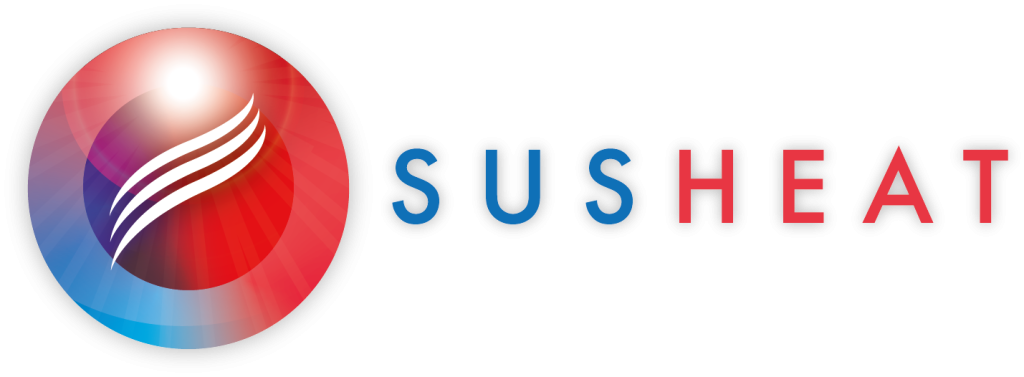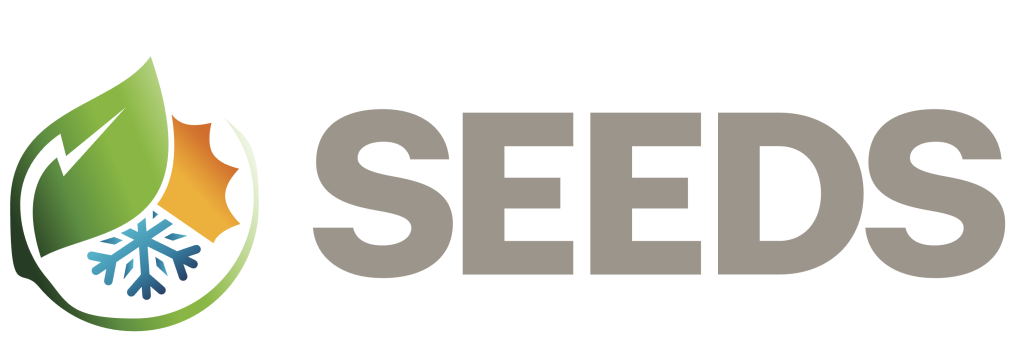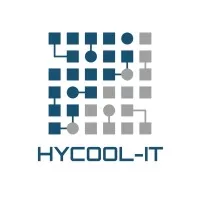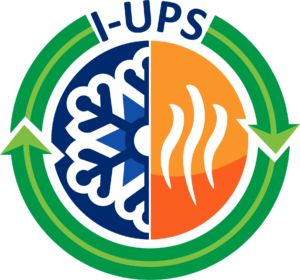In spring 2025 SPIRIT joined the 2Cool2Waste Initiative, a group os sister projects working on heating and cooling solutions to decarbonise EU process industry. Find out more about the projects that are part of the initiative here below.

The PUSH2HEAT project aims to advance heat upgrade technologies by addressing technical and non-technical barriers and developing business models for full-scale demonstrations in industrial sectors. Running from October 2022 to September 2026, it focuses on heat supply temperatures of 90-160ºC. The project will develop four key technologies: an upscaled high-temperature heat pump (HTHP) with a piston compressor, a large-scale HTHP with a centrifugal compressor, an upscaled absorption heat transformer, and a thermochemical heat transformer. These will be demonstrated (TRL 7-8) in three operational plants across key industries. PUSH2HEAT also seeks to create business models, assess industrial potential, evaluate environmental and economic impacts, and enhance awareness among stakeholders to drive widespread adoption.
SUSHEAT is a multi-actor project focused on cutting factory CO2 emissions and boosting energy efficiency by recycling industrial waste heat and integrating renewable energy sources. With partners spanning 11 European Union countries, the project’s goal is to develop and validate a heat upgrade system capable of delivering reliable and flexible industrial heat within a temperature range of 150ºC - 250ºC. SUSHEAT will enhance ENERIN’s industrial High-Temperature Heat Pump (HT-HP) technology to capture waste heat and convert it into temperatures suitable for intensive manufacturing processes. Novel Thermal Energy Storage (TES) will be integrated into the innovative HT-HP system, alongside a Fresnel Solar Thermal Collector to harness and store solar energy. This innovative approach will be optimised using AI-driven energy management.


The SEEDS project develops cost-effective, replicable solutions for electrified heating and cooling in buildings using renewable energy sources. It integrates energy-efficient renovations and smart HVAC systems to lower energy demand and support energy flexibility. SEEDS demonstrates its approach across six pilot sites in Denmark, Belgium, Hungary, Slovenia, and Greece—ranging from heritage homes to a new hotel and office building. The project targets enhanced grid stability, reduced environmental impact, and decreased reliance on fossil fuels by leveraging local renewable sources. Its outcomes are designed for scalability across diverse climates and construction markets.
🌐 https://project-seeds.eu
Hycool_IT aims to revolutionize IT server room cooling in tertiary buildings through energy-efficient, waste-heat-powered solutions. It focuses on developing a rack-integrated adsorption chiller for liquid cooling and a hybrid system for waste heat recovery. The project emphasizes system replicability through standardization and advanced digital integration. An ICT ecosystem will orchestrate system operations, enabling interoperability and smart control using IoT technologies. Hycool_IT promotes economic viability and environmental sustainability by reducing operational costs and emissions through low-impact, circular energy systems. It ultimately seeks to transform server room energy management with scalable, smart, and sustainable solutions.
🌐 https://hycoolit-project.eu/

THUNDER addresses challenges in data center waste heat recovery through innovative seasonal thermal storage using thermochemical materials. The project covers the full value chain—from storage providers to district energy operators—offering scalable, efficient solutions. Demonstrations in Bulgaria and pre-feasibility studies in ten other European sites aim to validate its approach. THUNDER fosters adoption through workshops, co-design sessions, and stakeholder engagement to overcome social and market barriers. By integrating data center waste heat into local energy systems, the project promotes sustainability, energy efficiency, and new business opportunities in regions where such practices are currently underutilized.
🌐 https://www.thunderproject.eu/
RE-WITCH develops and demonstrates thermally-driven heating and cooling technologies for industry using low-grade waste heat and renewables. The project includes compact adsorption chillers, dual-cycle absorption systems, and vacuum solar collectors. Demonstrations will be conducted in four industrial sites across Europe, with further replication studies in additional sectors like paper and data centers. RE-WITCH also creates open-access modeling tools and engineering platforms to support scale-up and integration into existing processes. With a strong consortium of industrial, academic, and SME partners, RE-WITCH aims to commercialize its innovations and influence future EU energy policies.
🌐 https://ieecp.org/projects/re-witch/
HEATWISE tackles waste heat reuse and energy management in tertiary buildings with large IT loads. The project implements hybrid cooling technologies, digital twin-enabled energy management, and a multi-objective optimization system. It provides a self-assessment tool and fosters knowledge exchange through an interactive platform. Pilots in Denmark, Poland, Switzerland, and Turkey will showcase real-world performance. HEATWISE enhances energy efficiency, reduces thermal waste, and creates additional value by integrating smart data management and IoT solutions. Its holistic approach helps modernize building energy systems in an environmentally and economically sustainable way.
🌐 https://heatwise.eu/
MODERATOR creates a modular and scalable system for energy-efficient data centers by combining immersion cooling with long-term thermal energy storage. It uses non-toxic phase change materials and multilayer insulation made from recycled materials to extract, recover, and reuse waste heat. The 40 kW prototype system includes a 500 kWh storage unit and is designed for easy integration across data center scales. The project’s aim is to reduce environmental impacts while increasing sustainability and circularity in digital infrastructure. MODERATOR supports the green transformation of data centers with innovative, replicable solutions.
🌐 https://moderatorproject.eu/
SENERGY NETS demonstrates how multi-energy systems—integrating heat, electricity, and gas—can decarbonize urban areas using local renewable energy. It develops tools for planning and optimizing district heating and energy grids with sector coupling and flexibility services. Pilot sites in Italy, Slovenia, and France, plus replication in Sweden and Spain, provide diverse settings to test the approach. SENERGY NETS aligns business models, infrastructure, and policy with decarbonization goals. The project evaluates environmental and economic impacts and supports the transition to flexible, integrated energy systems through stakeholder collaboration and robust digital platforms.
🌐 https://senergy-nets.eu/
GEOSYN pioneers the use of geothermal energy for industrial heat by developing a high-temperature steam heat pump with a refrigeration cycle powered by heat and using water as a natural working fluid. The project aims to enable cascading energy use and underground thermal storage integration for higher efficiency. GEOSYN’s flexible and scalable solution supports the transition away from fossil fuels and facilitates cost-effective, secure, and clean industrial heat. With a focus on real-world industrial applications, GEOSYN brings together technical innovation and sustainable design to unlock geothermal energy’s full industrial potential.
🌐 https://geosynproject.eu/

EEETHOS will develop and demonstrate key technologies for energy-efficient, flexible, and decarbonized industrial process heating. Five TRL 7 installations at industrial end-users will showcase high-temperature and reversed Brayton heat pumps, steam compression drying, mineral drying, and radiative heat recovery. These scalable solutions enable 43–86% energy savings and full decarbonization using local renewable energy. Digital twin-based optimization will support development, implementation, and scaling, establishing EEETHOS as a cornerstone for a decarized, efficient, and competitive European industry.
🌐 https://eeethos-project.eu/
I-UPS will develop and demonstrate a first-of-a-kind high-temperature heat pump system combined with energy storage and steam generation for industrial heat up to 400 °C. The project aims to replace fossil-based heat sources, addressing a major share of global CO₂ emissions from industrial processes. By enhancing system flexibility, efficiency, and sustainability, I-UPS supports large-scale electrification and renewable integration. The initiative will strengthen Europe’s leadership in advanced industrial heat pump technologies, promoting waste heat recovery, energy efficiency, and significant carbon reduction across energy-intensive industries.


EXQUISHEAT aims to (i) analyse industrial processes and develop standardised heat pump solutions for the food industry and (ii) establish a roundtable platform fostering collaboration between industry stakeholders and technology providers. The 36-month project unites nine partners from six European countries, representing all key stakeholder groups. Combining technical, industrial, and market expertise, the consortium will promote sustainable energy solutions, enabling at least 20 new heat pump installations. These will save 28 GWh of energy and 36 tCO₂-eq annually, supporting the EU Green Deal, REPowerEU, and Net-Zero Industry Act objectives.
UP-FLEXH will develop and validate a first-of-a-kind integrated energy system delivering flexible industrial heat, cooling, and power flexibility while maximizing renewable integration and efficiency. The project features a cost-effective, reliable high-temperature industrial heat pump (up to 400 °C) based on Stirling cycles using an environmentally friendly working fluid. It will recover waste heat, supply cooling (<20 °C), and enable reversible power generation. The system integrates molten salt thermal storage, compact heat exchangers, and optimized solar thermal hybridization. Modular and scalable, UP-FLEXH supports industrial decarbonization, renewable use, and sustainable process electrification.
🌐 https://bitly.cx/4mHSe